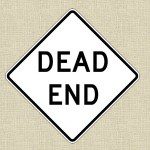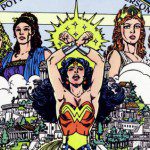I was asked the other day about what exactly I (and many other Americans) mean when we talk about the Pagan Community. It’s a good question, and one that has a lot of layers (like an onion!). Community is a pretty nebulous concept, Pagan community especially so.
The most problematic thing when it comes to defining Pagan community is the word “Pagan.” Ten years ago I would have argued that “Pagan” is mostly a religious grouping, today I’m not so sure. There are a lot of smart, well-respected Pagan thinkers out there who think of the word as a social grouping and not a spiritual one. I think they make some valid points, but I think Pagan was originally meant to be an umbrella term for a diverse religious community and I still think that’s the core foundation of how the word is used today. Your results may vary, and I’m free to change my mind about this in five or six years.
Defining community is a bit easier, though it does have several definitions.Merriam-Webster defines community as:
1 : a unified body of individuals: as
a : state, commonwealth
b : the people with common interests living in a particular area; broadly : the area itself
c : an interacting population of various kinds of individuals (as species) in a common location
d : a group of people with a common characteristic or interest living together within a larger society
e : a group linked by a common policy
f : a body of persons or nations having a common history or common social, economic, and political interests
g : a body of persons of common and especially professional interests scattered through a larger society
I think a bunch of those definitions are valid when speaking or writing about the Pagan community, but the different types of Pagan Community need to be broken down.
Local Pagan Communities
My strongest relationships within the Pagan Community tend to be my ties to the local community. My local community includes the people I practice with every other week, but also other folks I interact with on a regular basis.
In smaller areas local communities can be quite diverse. When I lived in Lansing Michigan I often shared my Beltanes with Druids, Witches, Heathens, Thelemites, and even a few open minded Christians. There were so few of us that if we wanted a big sabbat celebration we had to come together to do so.
Now that I live in California’s Bay Area (San Jose/San Francisco/Oakland) things are different. There are lots of Pagans here and as a result I interact a lot less with people outside of Witchy circles. Even though we don’t ritualize together with much frequency most of us still know each other at least a little bit, and there are still times when we share space. That’s most notable at events like Pantheacon which are designed for the various threads within Paganism.
I don’t think practicing a Pagan Path is a requirement for being a part of a local Pagan Community. If someone comes to every local event and hangs out with the locals, they are a part of the Pagan Community, even if they aren’t a practicing Pagan. Many of the groups I’ve been involved with over the years have had “token Christians” within their ranks. Folks involved in New Age religions often cross over into Pagan spaces making them a part of our local communities from time to time.
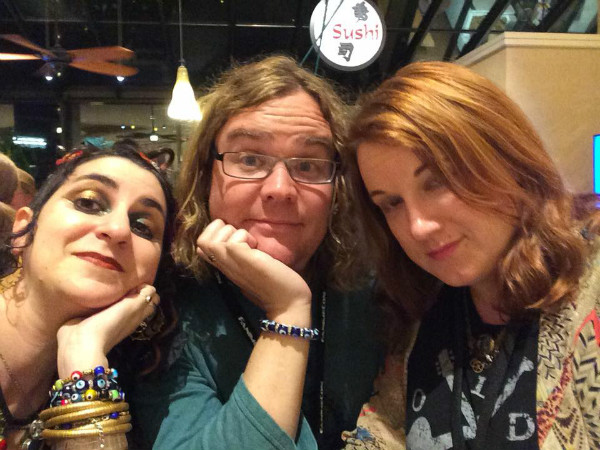
Local communities” might be restricted to just one town or city, or they might involve people who live a few hours apart. I do Witch stuff with Gwion and Phoenix and they live over two hours from me. Because I see them with some frequency I think of them as “local” when they really aren’t. Someone is local when you think they are local.
California is so big that it sometimes feels like its own country. As a result there are a whole lot of folks I love there that I only see once or twice a year, and sometimes much less than that. Those people might live in far-away San Diego or perhaps up north in Chico, but that doesn’t mean we don’t talk about Pagan-things in California. It’s not like my backyard-local Pagan Community, but it’s still kind of a local community because we talk about things that might effect us on a statewide level.
One can also leave a local community and remain a part of it. Ari and I haven’t lived in Michigan in five and a half years, but we are still connected to the local community we helped build and were a part of there. It’s where our upline lives, not to mention all the Pagans around Michigan State University we grew up with. ConVocation isn’t my local festival anymore, but it’s still my local festival, even if it’s 2000 miles away.
Country & Continent Communities
I was recently at CWPN’s Harvest Gathering festival as a guest speaker. A group from Connecticut can’t be my local community, but they certainly felt like it over my four days there. The pronunciation of athame might differ from coast to coast, but our respective Paganisms united us in a way that felt like community.
As a National Community we might fight for prison inmates to have access to Pagan clergy, or petition for pentacles on the markers of our military dead. We sometimes help each other out when tragedies hit. I’ve never been to New Orleans or to the New Orleans Voodoo Spiritual Temple, but when Utu of the Dragon Ritual Drummers (from Canada) and Lilith Dorsey (New York City) tell me that their rebuilding fund is worth donating to I do it. Not my tradition, not my city, still my rodeo!
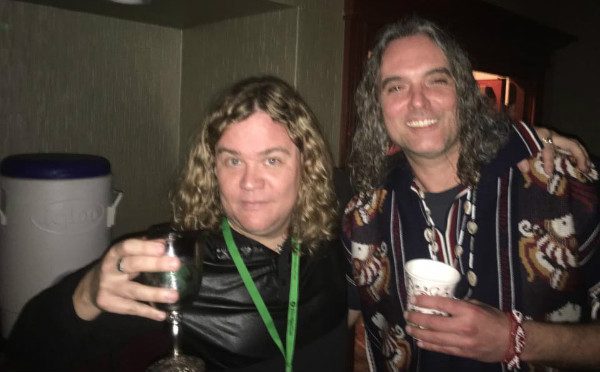
Communities Based Around Certain Traditions
I’m a Gardnerian Witch and a part of the greater Gardnerian Community. Some of the people in this community are members of my up-line, but most are distant cousins. It doesn’t matter just how distant someone is, as long as I believe they’ve received a legitimate Gardnerian initiation then we are a part of a shared community.
Shared communities based around traditions might have tradition-only events and meet-ups. Most at least have online forums just for members. Sometimes tradition communities exist in the micro (like Feri initiates only) and sometimes they are bigger (all Witches groups for example, and I just joined an Alexandrian/Gardnerian group). Some of these traditions/groups exclude non members and others welcome them.
The Online Pagan Community
The Online Pagan Community consists of everyone who actively participates in online Pagandom at least a couple of times a month. Online Pagandom exists in a couple of different places. It consists of our “shared blog spaces,” Pagan portals like Patheos Pagan, Pagan Square, and The Wild Hunt come immediately to mind. It’s also where we come into contact with people from around the world on social media sites like Facebook. (This post was inspired by a friend in Australia). Podcasts and videos are a part of this world too.
If one is reading Pagan blogs and commenting and interacting with other Pagans then they are a part of the Online Pagan Community, whether they self-identify that way or not. There are a lot of people who have forsaken the word Pagan yet still inhabit Pagan spaces; I’d argue that they are still a part of the Online Pagan Community (guilt by association?) as a result. Some people don’t want to hear that last part, but it’s true, at least for now.
This article was super-easy to write until I got here. Several revisions later and I’m still not sure this section has come out the way I want it to, and that’s because the online Pagan world has two distinct parts to it, along with a mushy middle. There are both quiet and vocal parts of the online community, and while they share some similarities they are also very different.
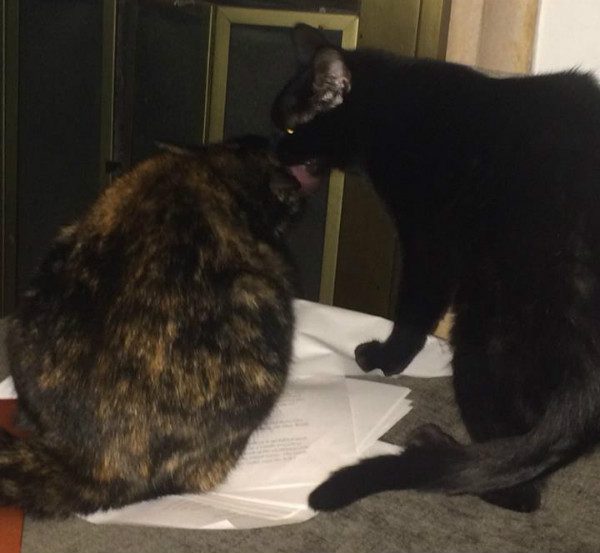
The Quiet Online Pagan Community is by far the largest part of the Online Pagan World, but it’s also the one many of us of notice the least. The quiet part of the online community reads what interests them and then doesn’t say very much about it publicly. Quiet readers also don’t generally get involved in the “controversies” (some real and some imagined) that are often a part of blog and social media spaces. The quiet part of the online community might share an article on Twitter or Facebook, but they aren’t going to obsess over it. (People really overestimate the power of blogs sometimes!)
A large portion of the traffic at Patheos Pagan comes from Google Searches. People want to know a little bit more about something and they search online for it, and that sometimes that brings them here. A large number of “blog readers” aren’t wedded to particular blogs, they are simply looking for information. That’s a part of our online world, and I think it’s the quiet part.
The vocal part of the online Pagan community consists of people who actively comment on blogs, post things in social media, and often write themselves. A lot of people who inhabit the vocal part of the online community enjoy exchanging ideas, and I’d argue that some simply enjoy arguing. There are a lot of very smart people involved in the vocal part of the online community, which has its own plusses and minuses. On the plus side I’ve learned a lot from my own comments section, on the minus side I think the debates and conversations in the blogosphere can be a bit intimidating to some.
The vocal part of the Online Pagan Community is also overwhelmingly liberal, and while I too am extremely liberal, I do think it’s sometimes problematic. I find it problematic because I don’t think Pagandom as a whole is as liberal as we make it out to be online. I don’t think one has to be a Marxist to be a Pagan. I think there are a lot of voices we aren’t hearing because they feel left out of the conversation, or they are simply afraid to express their viewpoints.
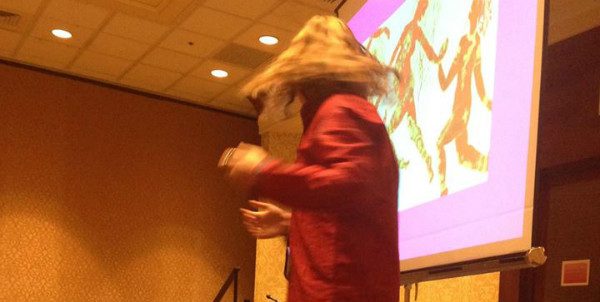
The Online Pagan Community is to some degree self-regulating. None of the major blogspots give space to hate speech or out and out racists or homophobes. (We have a ways to go on some other areas though.) Because of this I think there’s a small degree of control as to who gets in and out who doesn’t. (Which is why I think some groups are headed for dead ends.) The Online Pagan Community wields a lot of power, even if most Pagans aren’t actively a part of it. It has changed attitudes and festivals, and I believe it’s helped to make Pagandom a more welcoming place overall. Some of the groups the overwhelming majority of us don’t want associated with Modern Paganism, do sometimes try and participate in it. I think they are generally dismissed, but they do often lurk in the shadows commenting on blogs and in social media.
When writing about the extended Pagan Community on social media and at Raise the Horns I’m probably referring to this online community even if I don’t explicitly state it. The online community is the audience we serve at Patheos Pagan after all. Many of us do write about the events in our backyard, or the things we run into when we are out on the road, etc., so the lines often blur a little bit, but I think that’s true in all communities.
Greater Pagandom (The Worldwide Community)
Even if we don’t all interact with each other, we do share a lot with each other globally. Many of us have read the same books, magazines, and online articles. We share a common language even if we don’t practice the same way or share a tradition. I can easily have a “Pagan conversation” in San Francisco, Melbourne, or London without batting an eye. Many of us have watched the same movies and listened to the same pieces of music; there are some common themes within Paganism worldwide which is why I think there’s a Worldwide Pagan Community (or Greater Pagandom as I like to call it).
The world is also smaller today than it was 100 years ago. I’ve had two friends visit Australia to teach Witchcraft and Druidry respectively, and every year at PantheaCon I see at least a few friends from across the pond. While it sometimes feels as if our local Pagan communities are isolated outposts, that’s not so much the case today. There’s a big Pagan world out there and we are certainly: “a body of persons of common and especially professional interests scattered through a larger society.”
When I write about Pagan Community in the macro-sense I wish that I was always referencing this larger community, but we aren’t quite there yet. But I think we will be, and everyday the world seems to get a little smaller, all while remaining awe-inspiring and awesome.



